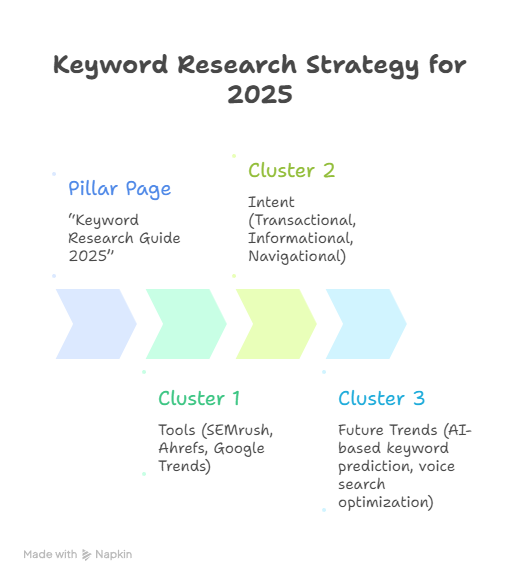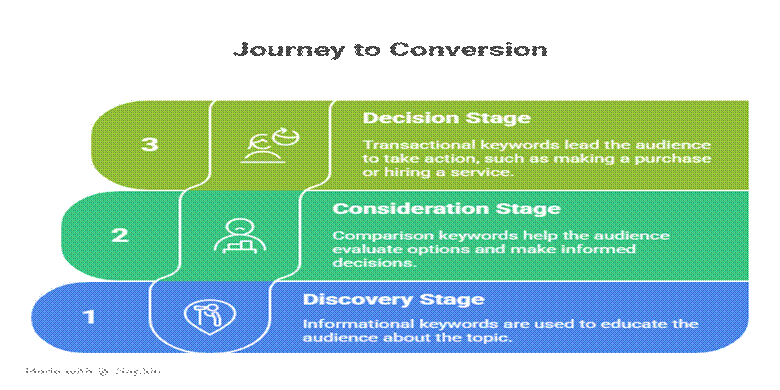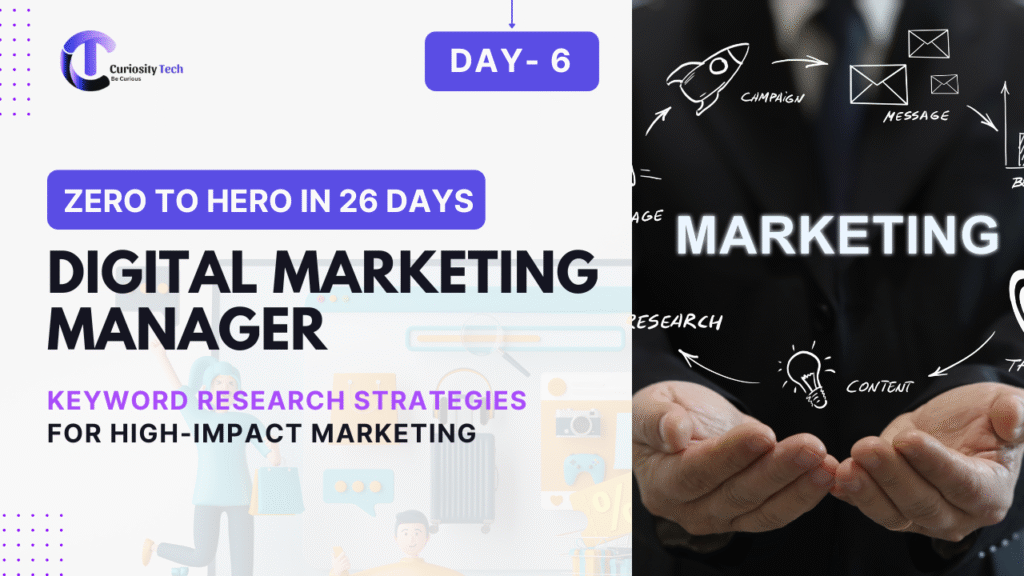Introduction
Digital marketing starts with one critical ingredient: keywords. They are the digital compass guiding businesses toward their ideal audience. Without strategic keyword research, even the best campaigns risk fading into the void.
At CuriosityTech.in, a Nagpur-based innovation hub for marketing and technology solutions, we’ve seen how brands that master keyword research can dominate search engines, improve engagement, and increase ROI. With hands-on consulting for startups and enterprises alike (📍 1st Floor, Plot No 81, Wardha Rd, Gajanan Nagar, Nagpur), we’ve built roadmaps that transform simple content into lead-generating machines.
This blog will explore keyword research in extreme depth, blending practical tools, proven methodologies, and evolving trends in 2025.
What is Keyword Research?
Keyword research is the process of discovering the words and phrases people use to search for products, services, or information.
It answers three fundamental questions:
- What does your audience want?
- How do they express it?
- How can you align your content with their intent?
Types of Keywords
| Keyword Type | Example Query | When to Use |
| Short-tail keywords | “Digital marketing” | High search volume, low conversion |
| Long-tail keywords | “Best keyword tools for small business 2025” | Low volume, high intent |
| Transactional | “Buy SEO services Nagpur” | Ready to purchase |
| Informational | “What is keyword clustering?” | Educate & attract top-of-funnel |
| Branded | “CuriosityTech digital marketing” | Brand visibility & reputation |
Keyword Research Strategies (2025 Edition)
1. User Intent Mapping (The Heart of SEO)
- Informational intent: Users want to learn → Blogs, guides.
- Navigational intent: Users seek a brand → Optimized landing pages.
- Transactional intent: Users are ready to buy → E-commerce SEO.
- Commercial intent: Users are comparing → Review articles, case studies.
At CuriosityTech, when we build funnels for Shopify and WooCommerce brands, we align each landing page to keyword intent. For example, a “buy” keyword drives users straight into checkout-oriented content.
2. Competitor Gap Analysis
Tools like SEMrush, Ahrefs, and Google Keyword Planner allow you to:
- Analyze competitors’ high-ranking terms.
- Find keywords they missed.
- Target those gaps with fresh, optimized content.
Example: If “Digital Marketing Services Nagpur” ranks for a competitor, but they miss “Affordable Digital Marketing Packages in Nagpur,” CuriosityTech can fill that gap with tailored landing pages.
3. Keyword Clustering & Topic Authority
In 2025, Google’s Helpful Content Update rewards topic authority. Instead of chasing one keyword per page, cluster related terms into a content hub.
Infographic Description: A hierarchical diagram showing:

- Pillar Page → “Keyword Research Guide 2025”
- Cluster 1: Tools (SEMrush, Ahrefs, Google Trends)
- Cluster 2: Intent (Transactional, Informational, Navigational)
- Cluster 3: Future Trends (AI-based keyword prediction, voice search optimization).
4. AI & Predictive Keyword Research
AI-driven tools (e.g., Clearscope, Surfer SEO, ChatGPT-based keyword predictors) now:
- Predict emerging search patterns.
- Help brands capture trends before they peak.
- Automate long-tail generation at scale.
At CuriosityTech, we integrate Zapier automation with keyword research tools, streamlining workflows for clients who want faster market adaptation.
5. Local SEO & Voice Search
- Voice-driven queries are longer and conversational:
- Text :- ” Digital Marketting Nagpur”
- Visual :- “Which is the best digital marketting company near Wardha Road, Nagpur ?”
- Local SEO tools like Google Business Profile insights help find hyperlocal phrases.
This is especially relevant for agencies like CuriosityTech, serving both Indian and international clients while remaining deeply rooted in Nagpur’s tech ecosystem.
Suggested Diagram – Keyword Funnel
- Discovery Stage → Informational Keywords (“What is keyword research?”)
- Consideration Stage → Comparison Keywords (“Best keyword tools 2025”)
- Decision Stage → Transactional Keywords (“Hire SEO experts in Nagpur”)

Becoming an Expert in Keyword Research
Expertise comes from:
- Consistency: Running audits every 3–6 months.
- Experimentation: Testing long-tail vs. short-tail performance.
- Data-driven learning: Tracking CTR, bounce rates, and conversions in Google Analytics.
- Adaptability: Following digital marketing trends in 2025 (AI, voice, local SEO).
At CuriosityTech, we train marketers not just to find keywords, but to interpret them as market signals—a skill that elevates campaigns from good to extraordinary.
Conclusion
Keyword research is no longer about stuffing content with high-volume terms—it’s about mapping the user journey, predicting trends, and optimizing for intent.
Brands that master keyword research in 2025 will outrank competitors, win user trust, and maximize ROI. With partners like CuriosityTech.in, businesses gain both the tools and expertise to stay ahead in this evolving landscape.



